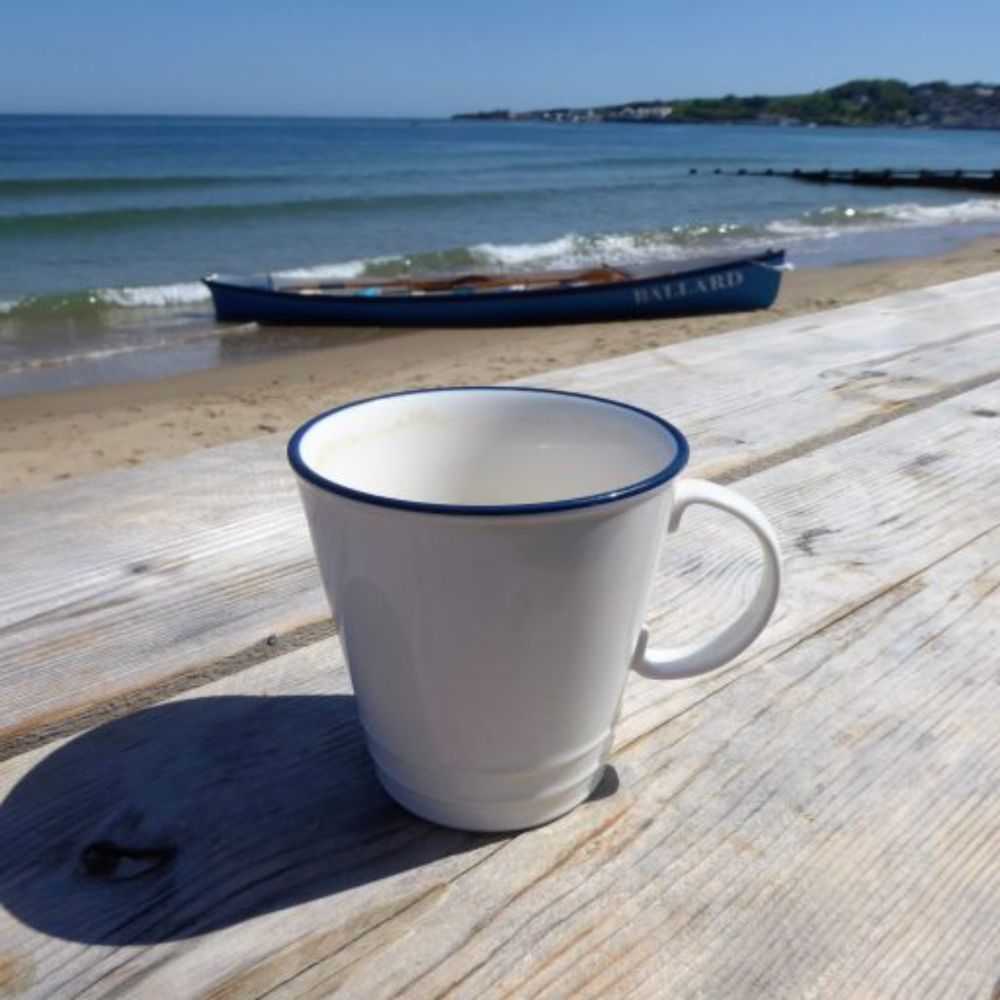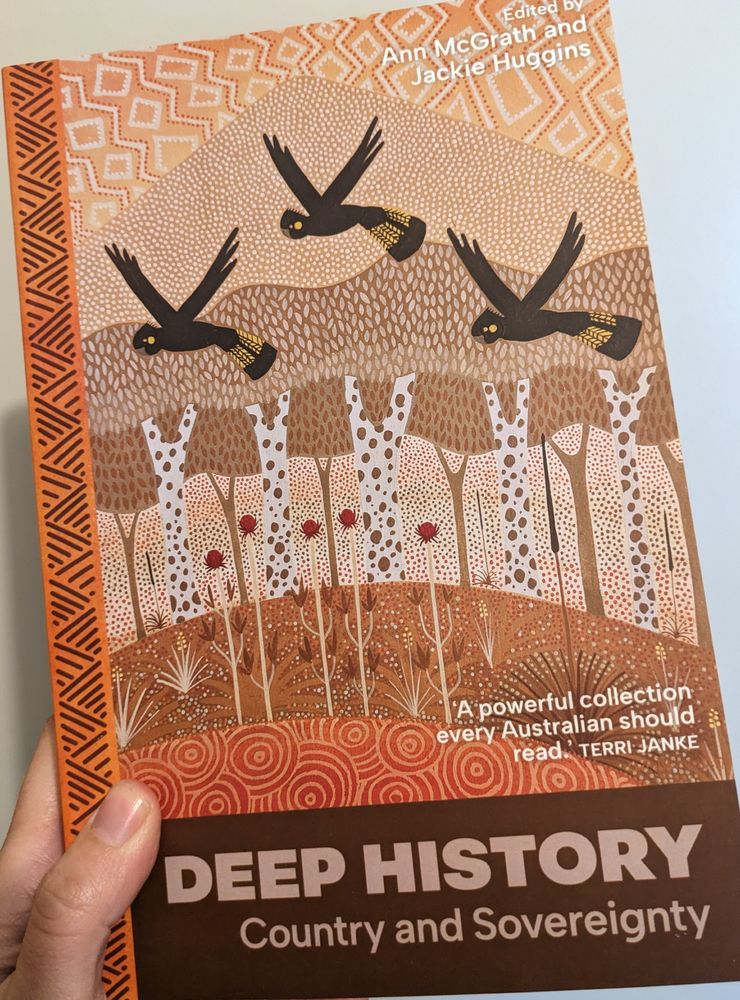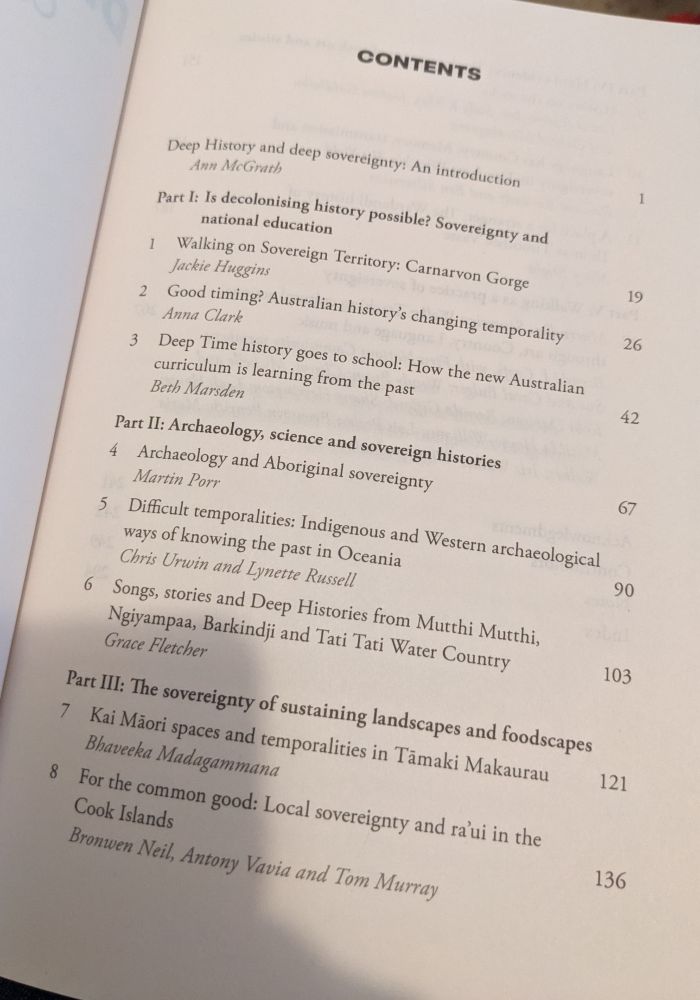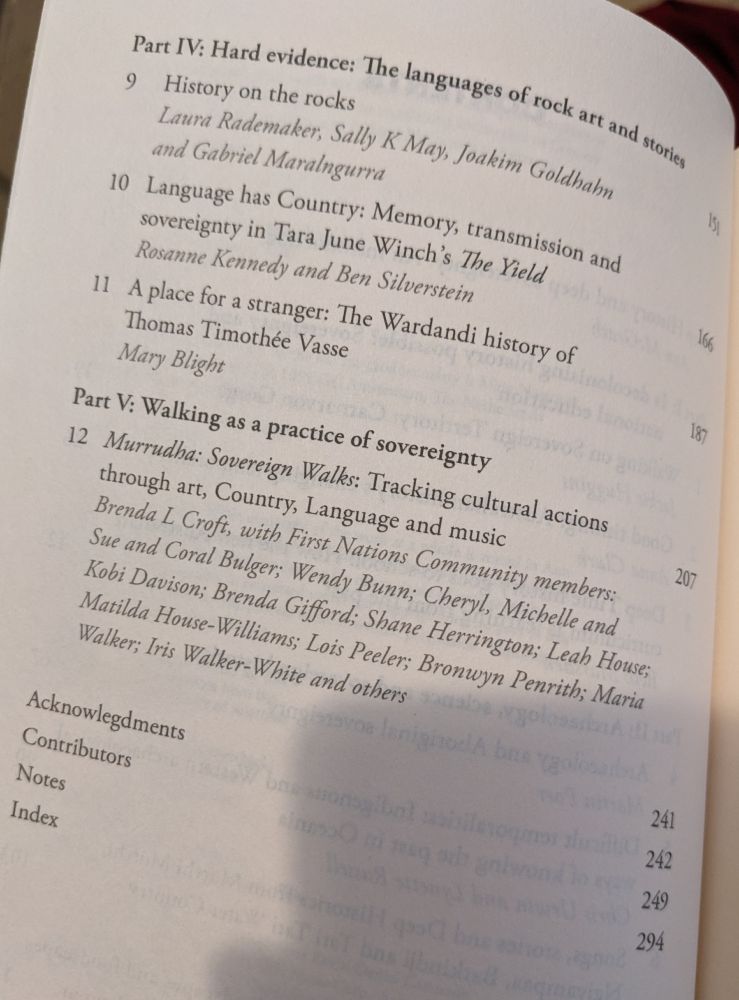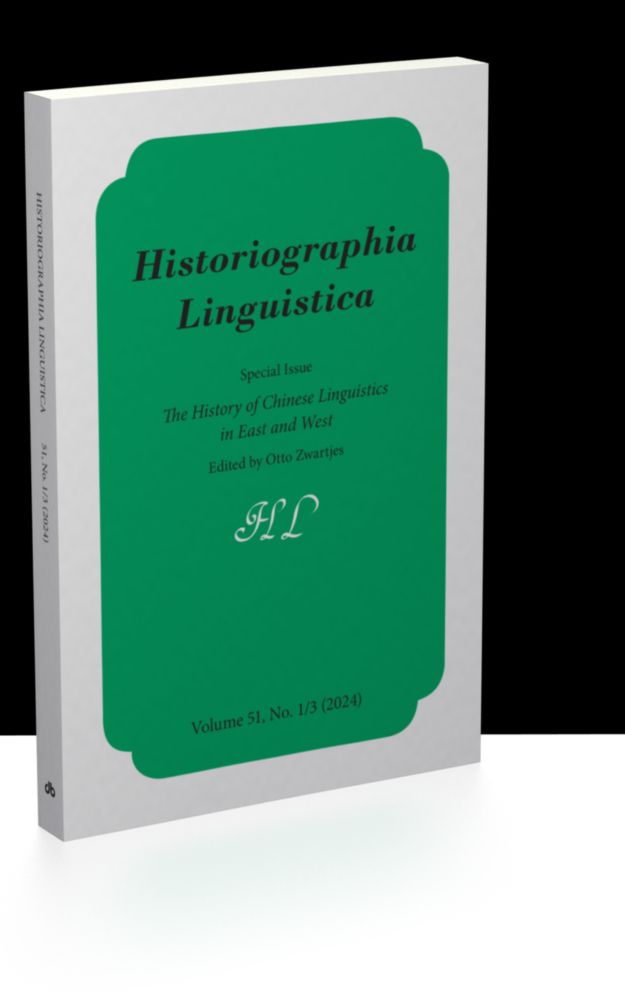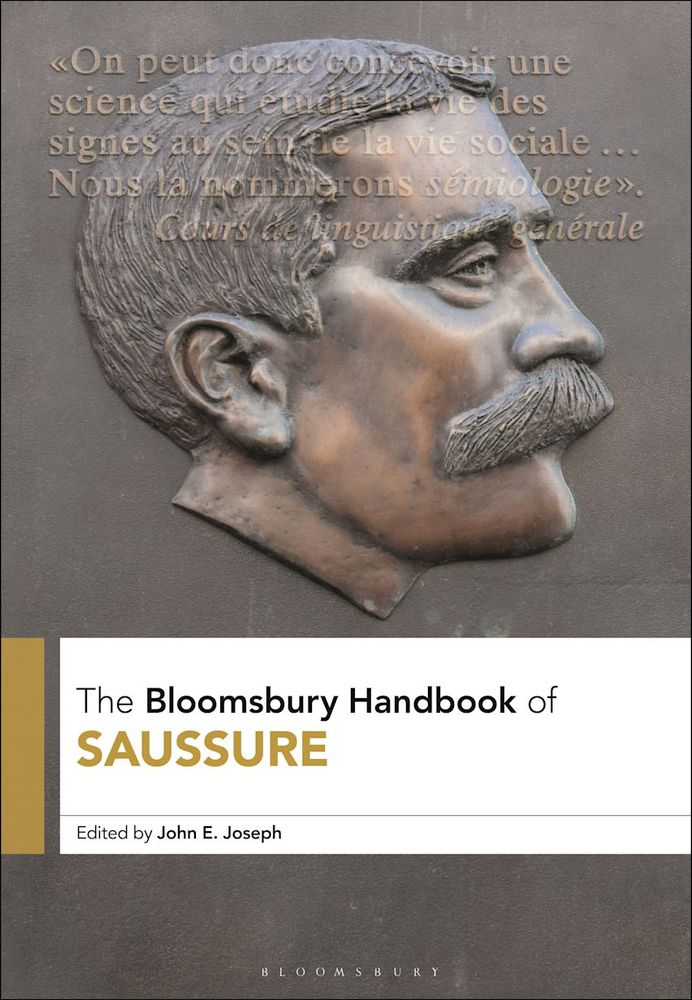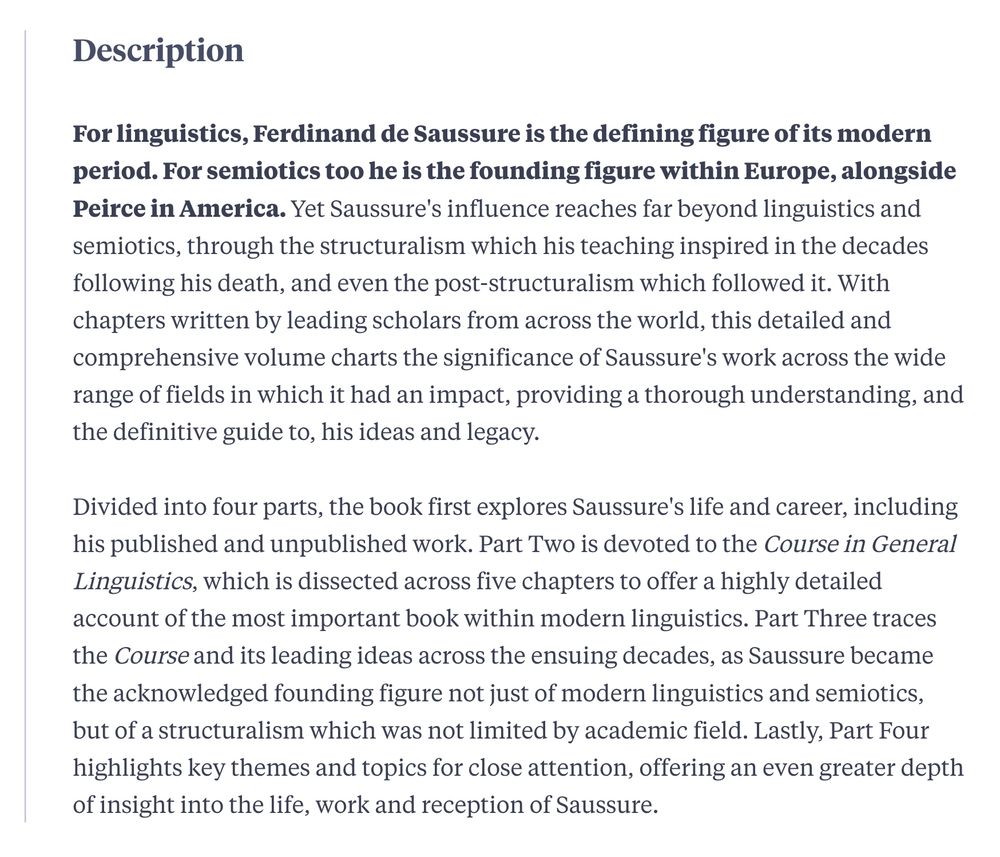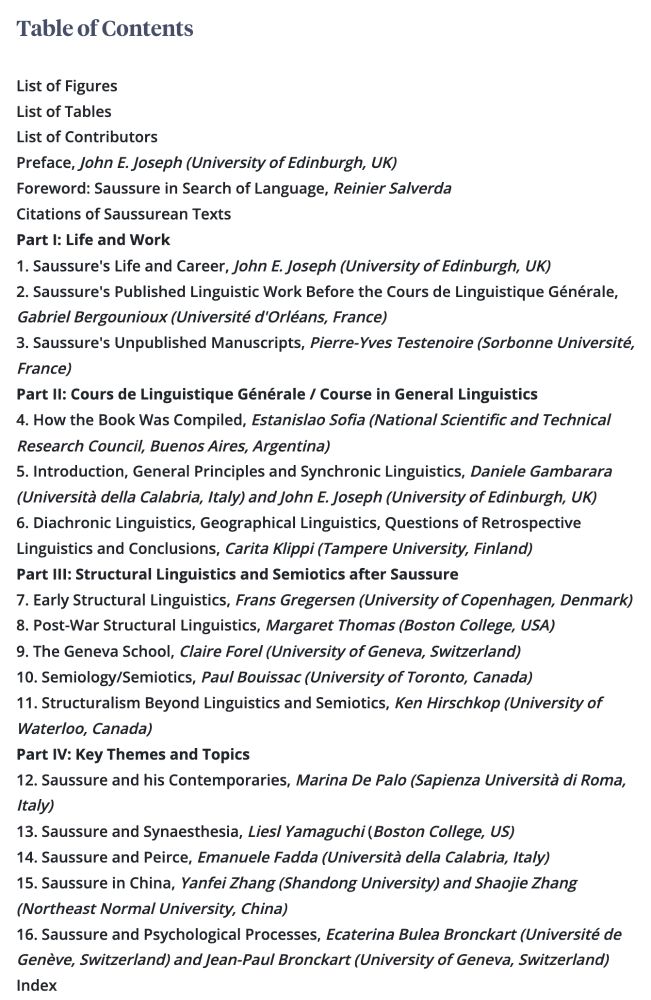LiME-lecture with Martin Konvička | Linguistics @ MEertens
Looking forward to my LiME lecture at the @meertens-knaw.bsky.social today 🤩
I’ll be presenting my work on non-canonical causal constructions (#BecauseX) in English, German, Dutch, Czech, and beyond.
Thanks to Jeroen Van Craenenbroeck for inviting me 🙏
lime.meertens.knaw.nl/en/lime-lect...
23.02.2026 09:00 —
👍 8
🔁 3
💬 0
📌 0
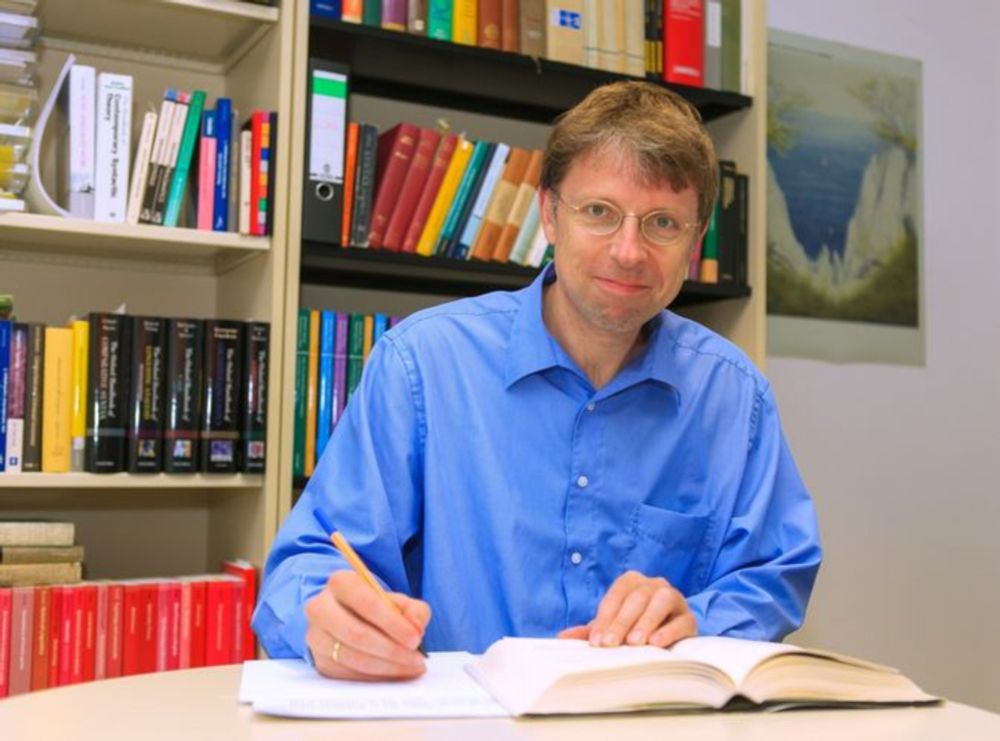
Podcast episode 51: Martin Haspelmath
In this interview, Martin Haspelmath talks about how he got started in linguistics, the rise of large-scale areal typology in the 1990s, language description vs language comparison, and the current…
Episode no. 51 is out 🤩
Martin Haspelmath (@haspelmath.bsky.social) talks about how he got started in linguistics, the rise of large-scale areal typology in the 1990s, language description vs language comparison, and the current state of the field.
🎙️ hiphilangsci.net/2025/11/01/p...
#Histlx
31.10.2025 15:01 —
👍 14
🔁 6
💬 0
📌 1
Hans Conon v d G features in a recent paper on which I was co-author
doi.org/10.1075/hl.0...
14.10.2025 17:45 —
👍 6
🔁 2
💬 1
📌 0

Podcast episode 47: Geoff Pullum on Geoff Pullum
In this interview, we talk to Geoff Pullum about his career, his contributions to linguistics, and how he sees the future of the field.
In the latest episode of our podcast (no. 47), we talk to Geoff Pullum about his career, his contributions to linguistics, and how he sees the future of the field.
🎙️ hiphilangsci.net/2025/09/01/p...
#Histlx #Linguistics #BLinguistik
01.09.2025 10:38 —
👍 8
🔁 3
💬 0
📌 0

A fresh new batch of Language & History articles has been published online, with a focus on the interactions between ✨Chinese and English✨ language teaching! Give them a look 👀
www.tandfonline.com/toc/ylhi20/0/0
13.08.2025 07:45 —
👍 10
🔁 4
💬 0
📌 0

NAAHoLS 2026 Annual Meeting
Date: 8-11 January 2026Place: New Orleans, LouisianaDeadline for submission: 1 September 2025Information: The North American Association for the History of the Language Sciences (NAAHoLS) will hold…
Call for Papers for the Annual Meeting of the North American Association for the History of the Language Sciences (NAAHoLS)
Date: 8-11 January 2026
Place: New Orleans, Louisiana
Deadline for submission: 1 September 2025
🔗 hiphilangsci.net/2025/08/05/n...
#Histlx
05.08.2025 05:34 —
👍 3
🔁 4
💬 0
📌 0
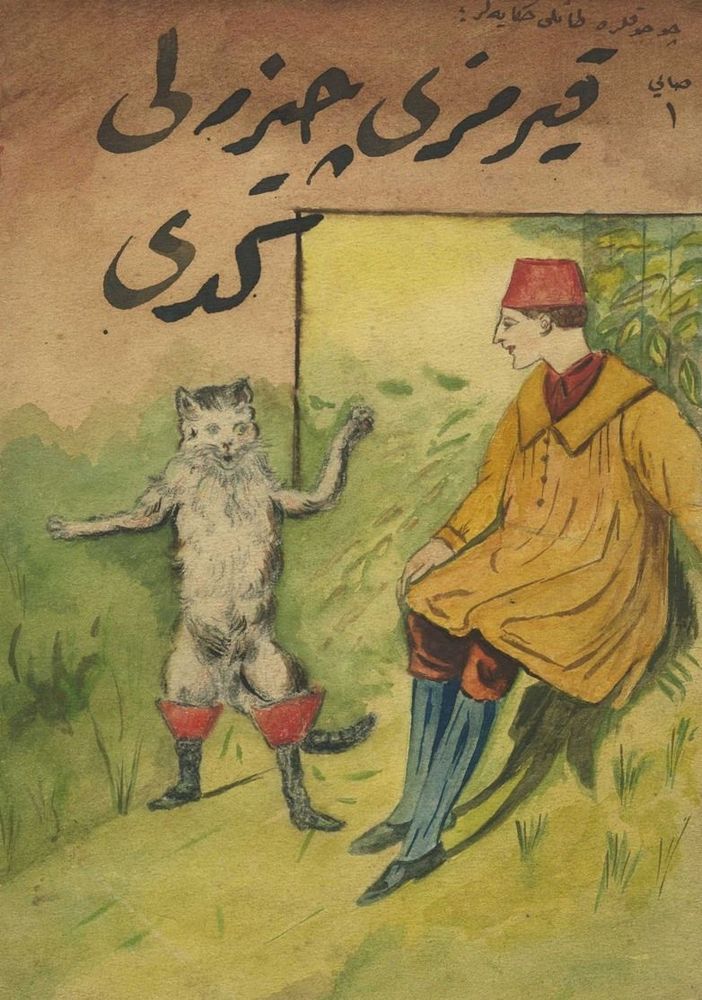
📕 Puss in Boots in Ottoman Turkish, 1910s #cat
30.07.2025 14:26 —
👍 122
🔁 28
💬 1
📌 1
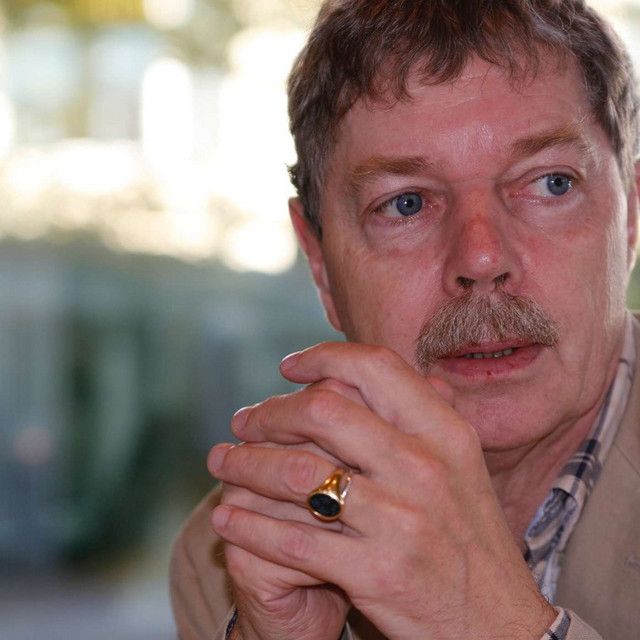
S5 E3 - Hans-Jörg Rheinberger on Epistemic Things
The HPS Podcast - Conversations from History, Philosophy and Social Studies of Science · Episode
It was a true privilege to have had the chance to interview Hans-Jörg Rheinberger, whose work has long influenced both my research interests and engagement with this discipline.
It's this week's episode of
The HPS Podcast – out now! 🎧
@hpspodcast.bsky.social
#hps #histsci #experiments
31.07.2025 18:36 —
👍 32
🔁 12
💬 1
📌 0
A perfect occasion to listen to ep. 44 of our podcast, in which James McElvenny (@jamesmcelvenny.bsky.social) talks to Ian Stewart (@princetonupress.bsky.social) about modern ideas about the Celts and and the role of historical-comparative linguistics.
🎙️ hiphilangsci.net/2025/03/01/p...
#Histlx
22.07.2025 11:23 —
👍 10
🔁 7
💬 1
📌 0
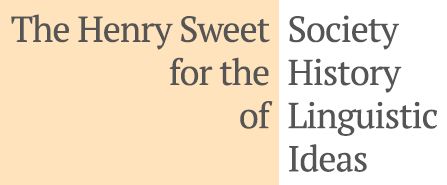
HSS Bulletin Archive — Henry Sweet Society
Bulletin of the Henry Sweet Society
Don't forget that the full archive of the Henry Sweet Society Bulletin (predecessor of Language & History) is available on our website in ✨OPEN ACCESS✨! This includes issues no. 1-51 (1984-2008). Drop by and browse: www.henrysweet.org/bulletin-of-...
14.07.2025 08:02 —
👍 12
🔁 7
💬 1
📌 0
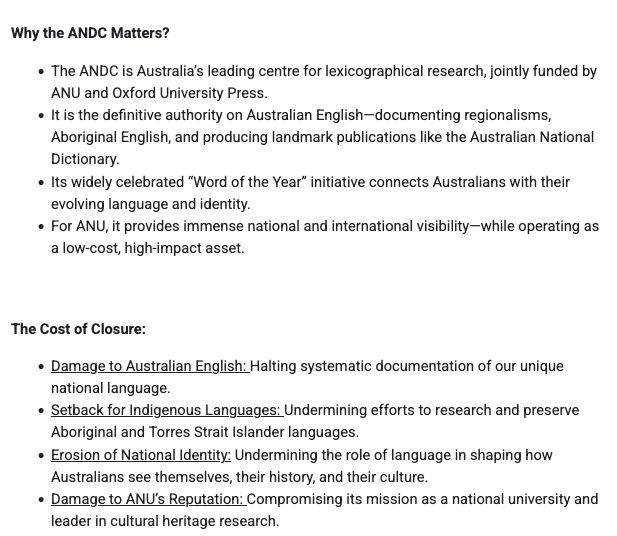
Why the ANDC Matters?
- The ANDC is Australia’s leading centre for lexicographical research, jointly funded by ANU and Oxford University Press.
- It is the definitive authority on Australian English—documenting regionalisms, Aboriginal English, and producing landmark publications like the Australian National Dictionary.
- Its widely celebrated “Word of the Year” initiative connects Australians with their evolving language and identity.
- For ANU, it provides immense national and international visibility—while operating as a low-cost, high-impact asset.
The Cost of Closure:
- Damage to Australian English: Halting systematic documentation of our unique national language.
- Setback for Indigenous Languages: Undermining efforts to research and preserve Aboriginal and Torres Strait Islander languages.
- Erosion of National Identity: Undermining the role of language in shaping how Australians see themselves, their history, and their culture.
- Damage to ANU’s Reputation: Compromising its mission as a national university and leader in cultural heritage research.
The latest round of cuts at ANU include an outrageous plan to close the Australian National Dictionary Centre (ANDC). ANU has forgotten its vital function as the national university.
Please sign this petition urging ANU to reconsider and protect the ANDC:
docs.google.com/forms/d/e/1F...
17.07.2025 00:46 —
👍 64
🔁 47
💬 0
📌 7

The Vivien Law Prize — Henry Sweet Society
The Vivien Law Prize
✨Vivien Law Essay Prize in the history of linguistic ideas✨
Deadline: 30th September 2025
If you are: a currently registered student or received your PhD/equivalent within the last five years (maternity leave excluded)
See details and get your submissions ready!👇
www.henrysweet.org/vivien-law-p...
09.07.2025 08:01 —
👍 9
🔁 10
💬 0
📌 0
(aber, ja, um Missverständnisse zu vermeiden: #climatechangeisreal)
01.07.2025 12:30 —
👍 1
🔁 0
💬 0
📌 0
Bah! Ich habe meine ganze Schulzeit bei 40 Grad im Outback verbracht.
01.07.2025 11:04 —
👍 1
🔁 0
💬 1
📌 0
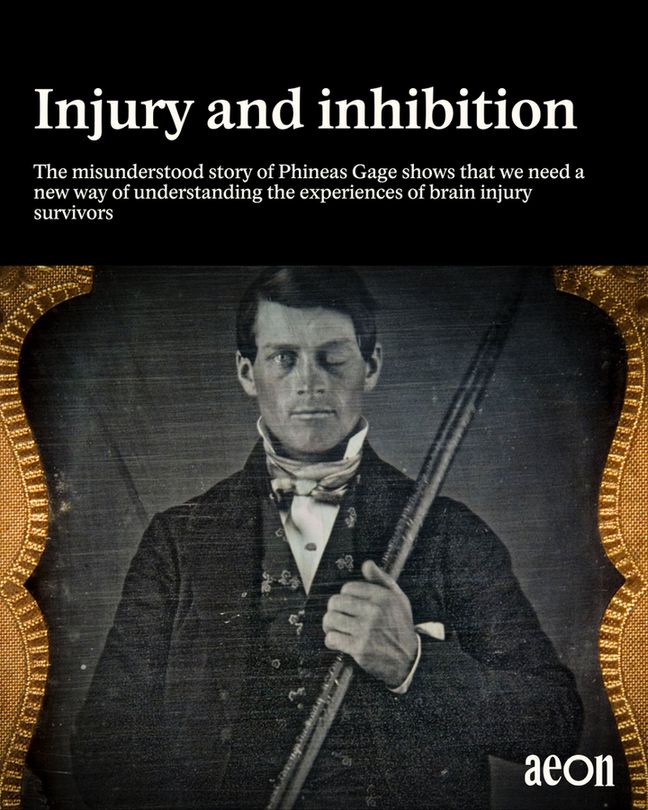
‘If we could stop thinking of the brain like it’s a Rubik’s cube, then perhaps we would have more capacity to talk about what’s truly iconic about Gage: that he survived, both as a body and a person’ buff.ly/1gMuFXd
23.06.2025 10:09 —
👍 8
🔁 6
💬 0
📌 2
Internet Archive: Digital Library of Free & Borrowable Texts, Movies, Music & Wayback Machine
i.e. Voegelin as quoted in Hockett (ed.), just in case it’s not clear. Link to book on archive.org in the post.
29.06.2025 19:06 —
👍 1
🔁 0
💬 1
📌 0

„Charles F. Voegelin has told me of the relation between Bloomfield and Sapr as he observed it in the 1930’s. Each had deep respect for the other, but with certain reservations. Sapir admired Bloomfield’s ability patiently to excerpt data and to file and collate slips until the patterns of the language…“

„…emerged, but spoke deprecatingly of Bloomfield’s sophomoric psychology. Bloomfield was dazzled by Sapir’s virtuosity and perhaps a bit jealous of it, but in matters outside language referred to Sapir as a ‚medicine man‘.“
Sorry, I don’t know. The most fun anecdote I know about that period is the attached from C. F. Voegelin.
archive.org/details/leon...
29.06.2025 19:01 —
👍 2
🔁 0
💬 1
📌 0
Interesting! And is there a connection to “slim” as in American “slim customer”?
27.06.2025 05:31 —
👍 3
🔁 0
💬 1
📌 0
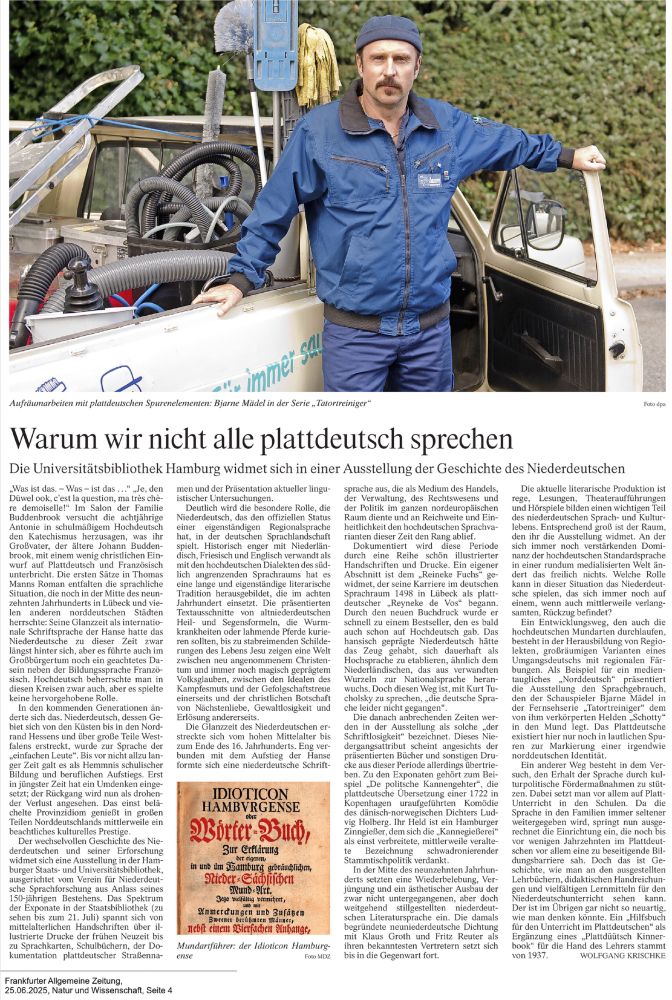
"Was ist das. - Was - ist das . . ." "Je, den Düwel ook, c'est la question, ma très chère demoiselle!" Im Salon der Familie Buddenbrook versucht die achtjährige Antonie in schulmäßigem Hochdeutsch den Katechismus herzusagen, was ihr Großvater, der ältere Johann Buddenbrook, mit einem wenig christlichen Einwurf auf Plattdeutsch und Französisch unterbricht. Die ersten Sätze in Thomas Manns Roman entfalten die sprachliche Situation, die noch in der Mitte des neunzehnten Jahrhunderts in Lübeck und vielen anderen norddeutschen Städten herrschte: Seine Glanzzeit als internationale Schriftsprache der Hanse hatte das Niederdeutsche zu dieser Zeit zwar längst hinter sich, aber es führte auch im Großbürgertum noch ein geachtetes Dasein neben der Bildungssprache Französisch. Hochdeutsch beherrschte man in diesen Kreisen zwar auch, aber es spielte keine hervorgehobene Rolle.
In den kommenden Generationen änderte sich das. Niederdeutsch, dessen Gebiet sich von den Küsten bis in den Nordrand Hessens und über große Teile Westfalens erstreckt, wurde zur Sprache der "einfachen Leute". Bis vor nicht allzu langer Zeit galt es als Hemmnis schulischer Bildung und beruflichen Aufstiegs. Erst in jüngster Zeit hat ein Umdenken eingesetzt; der Rückgang wird nun als drohender Verlust angesehen. Das einst belächelte Provinzidiom genießt in großen Teilen Norddeutschlands mittlerweile ein beachtliches kulturelles Prestige.
Der wechselvollen Geschichte des Niederdeutschen und seiner Erforschung widmet sich eine Ausstellung in der Hamburger Staats- und Universitätsbibliothek, ausgerichtet vom Verein für Niederdeutsche Sprachforschung aus Anlass seines 150-jährigen Bestehens. Das Spektrum der Exponate in der Staatsbibliothek (zu sehen bis zum 21. Juli) spannt sich von mittelalterlichen Handschriften über illustrierte Drucke der frühen Neuzeit bis zu Sprachkarten, Schulbüchern, der Dokumentation plattdeutscher Straßennamen und der Präsentation aktueller linguistischer Untersuchungen.
Deutlich…
Die FAZ über unsere aktuelle Ausstellung:
„Warum wir nicht alle plattdeutsch sprechen
Die Universitätsbibliothek Hamburg widmet sich in einer Ausstellung der Geschichte des Niederdeutschen.“
Noch bis 21.7. in der Stabi: blog.sub.uni-hamburg.de?p=40359
26.06.2025 07:26 —
👍 21
🔁 8
💬 0
📌 1
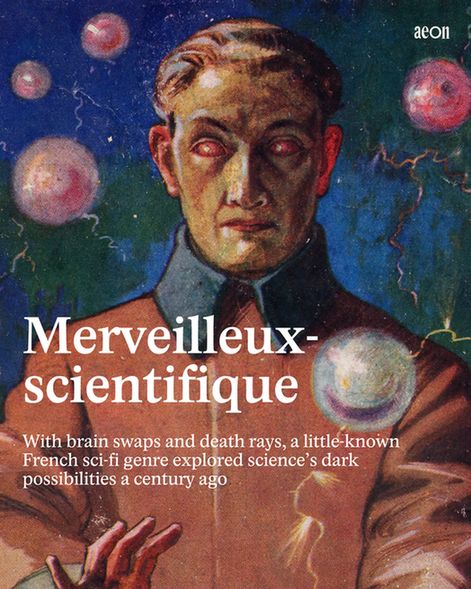
‘Enchantment and wonder can still coexist with the most serious science.’ How French ‘merveilleux-scientifique’ fiction reframed reality buff.ly/QnbZuh8
20.06.2025 10:52 —
👍 7
🔁 4
💬 0
📌 0
"Alles Verstehen ist […] zugleich ein Nicht-Verstehen"
#LinguisticBirthdays #Histlx #LinguisticQuotes
23.06.2025 06:22 —
👍 3
🔁 3
💬 0
📌 0
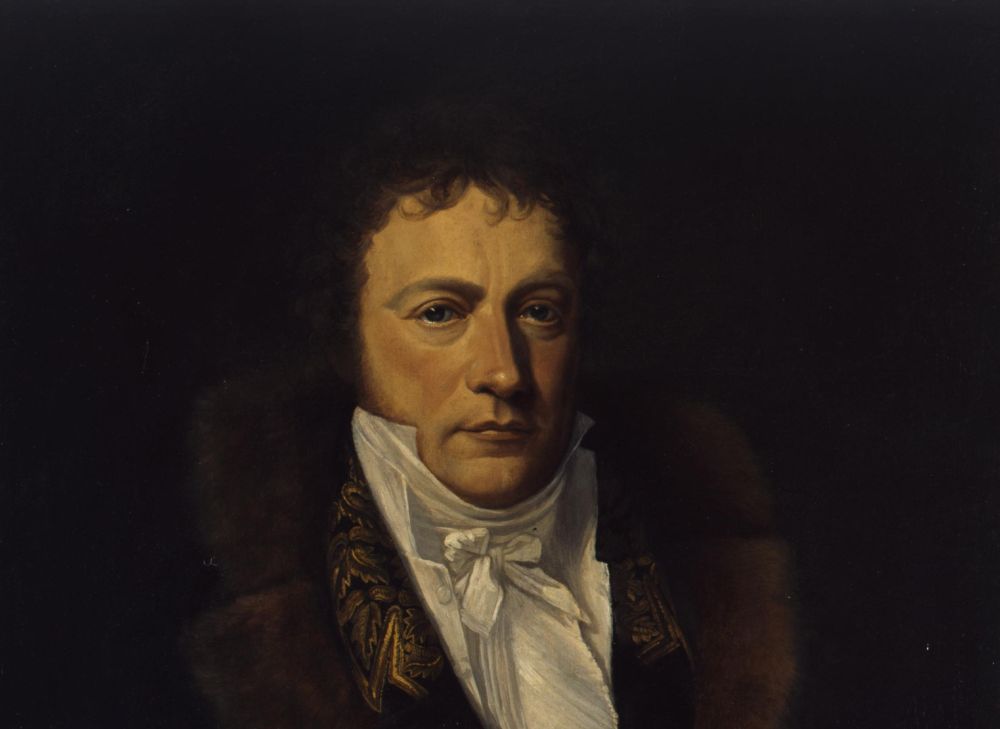
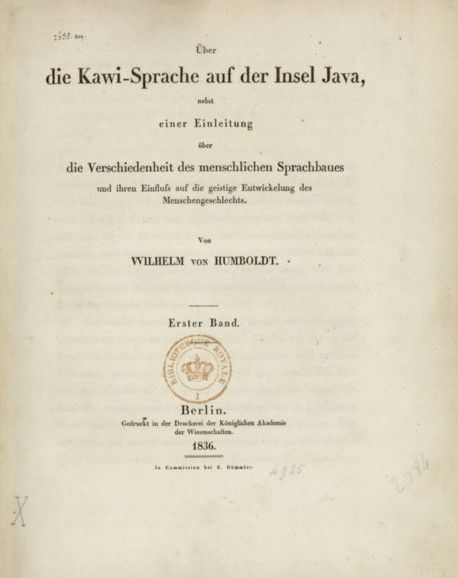
#OTD 258 years ago, Wilhelm von Humboldt (1767–1835) was born 🎉 A diplomat, politician, and highly influential philosopher of language, he was an early language typologist who contributed to the description of numerous languages, including Basque and Kawi.
#LinguisticBirthdays #Histlx
22.06.2025 09:17 —
👍 19
🔁 8
💬 0
📌 1









